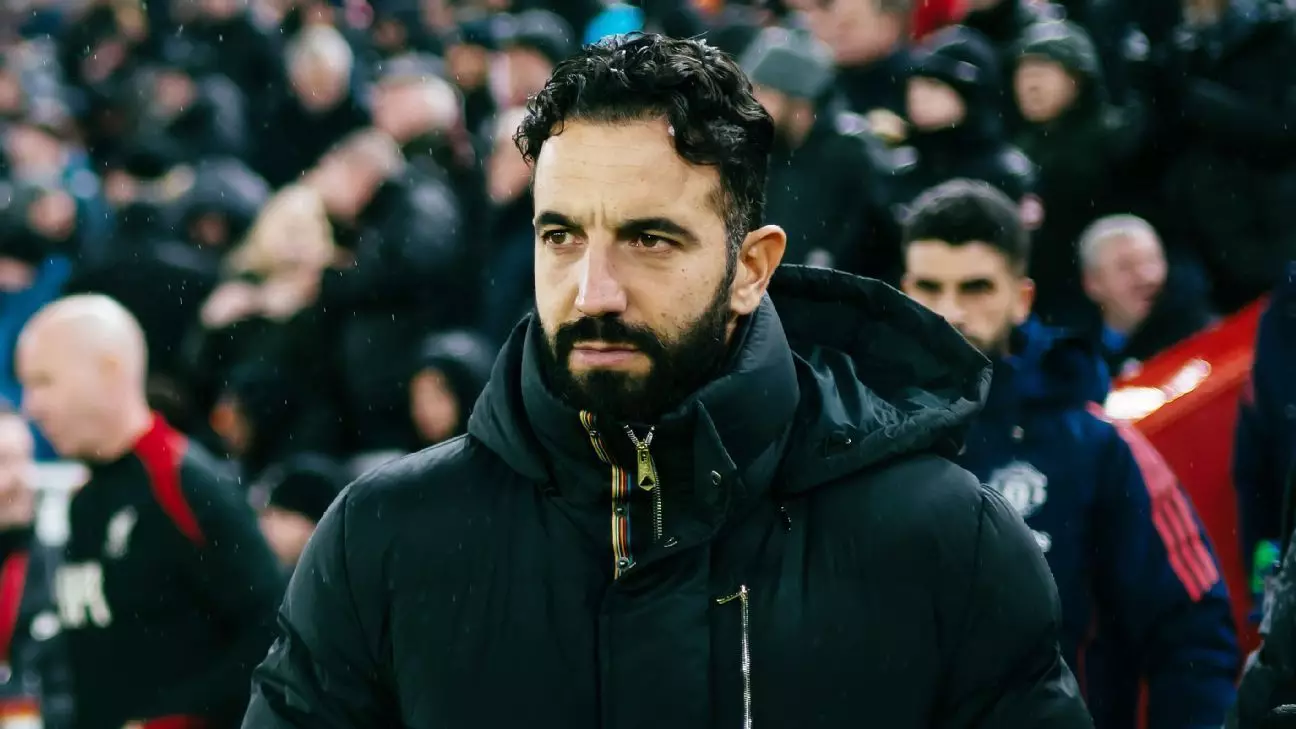Ruben Amorim, the manager of Manchester United, has urged both his team and the broader football community to redefine their understanding of success in the wake of the recent nail-biting 2-2 stalemate against Liverpool. This match not only showcased the persistence of his players but also raised pertinent questions about their mindset heading into crucial fixtures. With an impressive late equalizer from Amad Diallo, United demonstrated resilience after trailing behind prominent goals from Cody Gakpo and Mohamed Salah. The tie served as a small reprieve from a string of losses, but it was clear that Amorim believes more significant challenges lie ahead for a team he feels has become too complacent in its achievements.
In his post-match analysis, Amorim was forthright in his assessment; he criticized the comfort zone that has enveloped Manchester United, which he believes hinders progress. “Everyone at Manchester United is too comfortable,” he stated, emphasizing the need for a shift in mentality. This critical observation highlights a recurring theme of modern sports management: the ability to motivate and challenge players continually. Amorim’s “shock therapy” approach aims to dislodge the apathy that he claims has infiltrated the club while pushing his squad towards greater accountability and performance.
Amorim’s remarks underline a broader issue within the football culture. The pressure to deliver consistent results can sometimes lead teams to become overly protective or cautious, which diminishes their competitive edge. By confronting his players with stark truths, Amorim hopes to galvanize them into adopting a more aggressive and proactive style of play, which he insists is crucial for success in high-stakes matches.
Despite his concerns, Amorim praised the performance against Liverpool, stating that it was not merely about tactical systems but the mindset with which the players approached the game. By recognizing that the teams’ previous struggles stemmed from a lack of confidence and conviction, he acknowledges the necessity of fostering a strong team spirit and camaraderie. As he noted, the transformation will not happen overnight; it requires consistent effort and a collective willingness to engage with the process.
However, it is critical to question whether Amorim’s methods could risk demoralizing players if not managed carefully. While some individuals thrive on tough love, others may falter under continuous scrutiny. This nuanced approach to player management will be central to Amorim’s ongoing strategy as he endeavors to instill a competitive ethos at Manchester United.
Looking ahead, United’s daunting fixtures loom large, with an upcoming FA Cup clash against Arsenal followed by a Premier League match against Southampton. These encounters represent both challenges and opportunities for the team. Amorim has hinted at the need for a significant shift in how players approach each game—stressing the importance of consistency in performance and the mental fortitude to bounce back from setbacks.
With five losses in their previous six games, the specter of inconsistency haunts the team, creating an urgent need for not just tactical improvement but also resilience. Amorim’s call for training sessions focused on maintaining a winning mentality will be crucial for instilling a culture of continual improvement. The imperative here is clear: demonstrate growth, not just in individual skills but as a cohesive unit prepared for the rigors of tournament football.
In summation, Ruben Amorim’s stewardship is posturing Manchester United at a crossroads where they can either rectify their trajectory or become mired in the pitfalls of complacency. His candid acknowledgment of the team’s comfort zone and urgent plea for accountability can potentially ignite a renaissance within the squad. United’s potential revival hinges on a distinct shift in mentality that Amorim is keen to cultivate. As every football aficionado waits with bated breath to see how this pragmatic approach unfolds, one thing is clear: the battle to rekindle the fighting spirit at Manchester United is just beginning.

